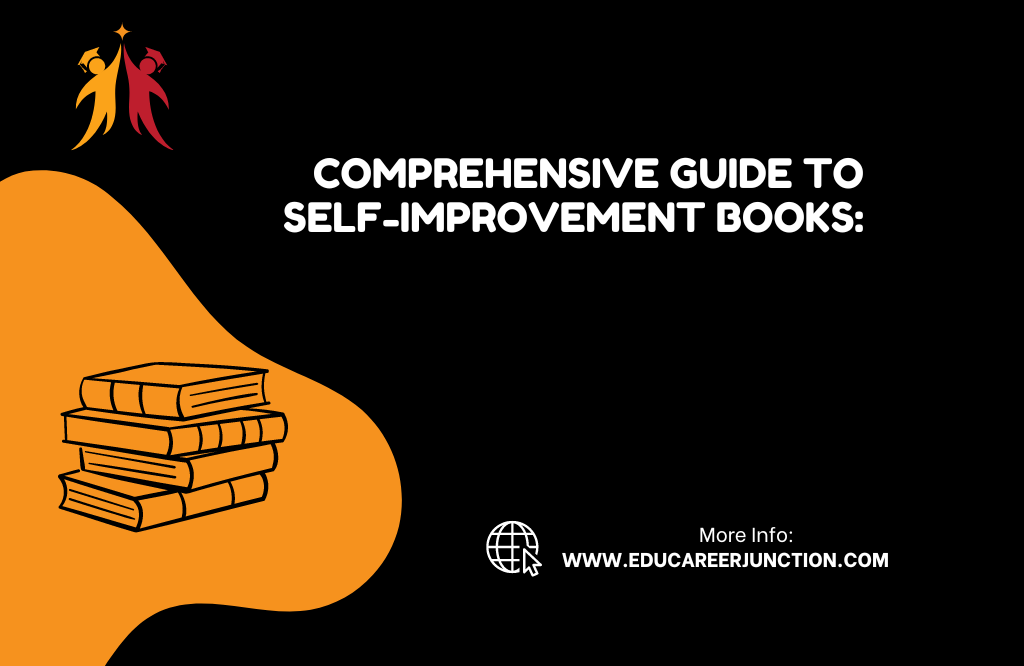Self-improvement books are more than just pages bound together; they are gateways to a better you. They offer guidance, insight, and inspiration to help you navigate the complexities of personal growth and development. In a world filled with distractions and demands, these books provide a roadmap to self-discovery and achievement. This comprehensive guide explores the vast array of self-improvement books available in English, providing you with the tools to embark on a transformative journey.
Self-improvement books are a treasure trove for anyone seeking to enhance their life. They provide invaluable insights into personal growth, motivation, and success. But why are these books so crucial? The modern world, with its relentless pace and increasing demands, can often leave us feeling overwhelmed and directionless. Self-improvement books serve as beacons of hope and guidance, helping individuals set and achieve their goals, overcome challenges, and realize their full potential.
Types and Categories
Personal Development
Motivational Books: These books are designed to inspire and uplift. They offer powerful messages and strategies to overcome self-doubt and build confidence. Classics like “The Power of Now” by Eckhart Tolle and “You Are a Badass” by Jen Sincero fall into this category, offering readers the tools to transform their mindset and embrace their potential.
Productivity Enhancers: Books focused on productivity provide practical advice on managing time and increasing efficiency. Titles such as “Atomic Habits” by James Clear and “Getting Things Done” by David Allen offer actionable strategies to streamline tasks and enhance productivity.
Professional Growth
Career Advancement: For those looking to climb the career ladder, books like “Deep Work” by Cal Newport and “The 7 Habits of Highly Effective People” by Stephen R. Covey offer insights into professional success and leadership.
Leadership and Management: Effective leadership is a crucial skill in any profession. Books such as “Leaders Eat Last” by Simon Sinek and “Dare to Lead” by Brené Brown provide guidance on leading with empathy, vision, and resilience.
Mental and Emotional Wellness
Emotional Intelligence: Understanding and managing emotions is vital for personal and professional success. Books like “Emotional Intelligence 2.0” by Travis Bradberry and Jean Greaves offer strategies for developing emotional intelligence and improving interpersonal relationships.
Stress Management: To navigate the pressures of modern life, stress management books such as “The Relaxation and Stress Reduction Workbook” by Martha Davis and “The Stress-Proof Brain” by Melanie Greenberg provide techniques to manage stress and enhance overall well-being.
Health and Wellness
Fitness and Nutrition: Maintaining physical health is integral to overall well-being. Books like “The Whole30” by Melissa Hartwig Urban and “Born to Run” by Christopher McDougall offer guidance on fitness and nutrition for a healthier lifestyle.
Holistic Healing: For those interested in alternative approaches to health, books such as “The Body Keeps the Score” by Bessel van der Kolk and “The Healing Self” by Deepak Chopra provide insights into holistic and integrative health practices.
Financial Literacy

Wealth Building: Financial self-improvement is crucial for achieving financial independence. Books like “Rich Dad Poor Dad” by Robert T. Kiyosaki and “The Millionaire Next Door” by Thomas J. Stanley and William D. Danko offer strategies for wealth building and financial management.
Budgeting and Saving: Effective budgeting and saving are essential for financial stability. Titles such as “You Need a Budget” by Jesse Mecham and “The Total Money Makeover” by Dave Ramsey provide practical advice on managing finances and achieving financial goals.
Symptoms and Signs
Identifying Areas for Improvement
Personal Awareness: Recognizing the need for personal growth often begins with self-reflection. Individuals may feel unfulfilled or stagnant, prompting the search for resources that offer guidance and inspiration.
Professional Challenges: Career dissatisfaction or a lack of progress can signal the need for professional development. Self-improvement books can help address these challenges by providing strategies for growth and advancement.
Common Indicators of Personal Growth Needs
Low Motivation: A decline in motivation can be a sign that an individual is in need of a boost. Self-improvement books can reignite enthusiasm and provide new perspectives on achieving goals.
Stress and Anxiety: High levels of stress and anxiety may indicate that someone could benefit from techniques and strategies outlined in self-improvement literature to improve their mental and emotional well-being.
Causes and Risk Factors
Biological and Psychological Factors
Genetic Predispositions: Some individuals may be more predisposed to certain challenges or personality traits due to their genetic makeup, impacting their personal growth journey.
Mental Health Conditions: Conditions such as depression or anxiety can hinder personal development. Self-improvement books can offer strategies to manage these conditions and enhance overall well-being.
Environmental Influences
Social and Cultural Background: A person’s environment, including their social and cultural background, can influence their perspective and growth. Understanding these influences can help tailor self-improvement efforts to better address individual needs.
Educational Opportunities: Access to education and learning resources plays a significant role in personal and professional development. Books and educational materials can bridge gaps and provide valuable knowledge and skills.
Lifestyle Choices

Daily Habits: The habits and routines that individuals establish can either support or hinder their growth. Self-improvement books often provide guidance on developing positive habits that contribute to long-term success.
Work-Life Balance: Striking a balance between work and personal life is crucial for overall well-being. Books on self-improvement often address strategies for achieving a harmonious work-life balance.
Diagnosis and Tests
Self-Assessment Tools
Personality Tests: Tools like the Myers-Briggs Type Indicator (MBTI) or the Enneagram can help individuals gain insights into their personality and preferences, guiding their personal growth journey.
Skills Assessments: Assessing one’s skills and abilities can provide clarity on areas for improvement. Self-improvement books may include exercises and assessments to help individuals identify their strengths and areas for development.
Professional Guidance
Coaching and Counseling: Professional coaches and counselors can provide personalized guidance and support. Books on self-improvement can complement this guidance by offering additional strategies and insights.
Workshops and Seminars: Participating in workshops and seminars can enhance learning and provide practical experience. Many self-improvement books recommend attending such events to further personal growth.
Treatment Options
Reading and Learning
Top Recommended Books: Exploring well-regarded self-improvement books can provide valuable insights and strategies. This includes classics and contemporary works that address various aspects of personal and professional development.
Author Insights: Learning from experts and authors in the field can offer unique perspectives and advice. Many self-improvement books feature interviews or contributions from renowned authors.
Practical Application
Setting Goals: Effective self-improvement involves setting clear, achievable goals. Books often provide frameworks and techniques for goal setting and tracking progress.
Creating Action Plans: Developing actionable plans is crucial for implementing the strategies outlined in self-improvement books. This includes creating detailed steps and timelines for achieving personal and professional goals.
Support Systems
Accountability Partners: Having a support system or accountability partner can enhance motivation and commitment. Self-improvement books may suggest finding a partner or group to support your journey.
Support Groups: Joining support groups can provide additional encouragement and resources. Many self-improvement books recommend participating in groups related to specific goals or challenges.
Preventive Measures
Building Positive Habits
Routine Establishment: Establishing positive routines and habits is essential for long-term success. Self-improvement books often provide strategies for creating and maintaining beneficial habits.
Healthy Lifestyle Choices: Adopting a healthy lifestyle, including regular exercise and balanced nutrition, supports overall well-being and personal growth.
Ongoing Learning and Development
Continuous Education: Engaging in lifelong learning is crucial for personal and professional development. Self-improvement books encourage readers to seek out new knowledge and skills regularly.
Skill Enhancement: Continuously improving skills and abilities contributes to personal growth and success. Books on self-improvement often provide resources and recommendations for skill development.
Personal Stories or Case Studies
Success Stories
Transformation Journeys: Real-life success stories provide inspiration and practical examples of how self-improvement can lead to significant changes. Many books include case studies and personal anecdotes to illustrate their points.
Real-Life Applications: Exploring how individuals have applied the principles from self-improvement books in their own lives can provide valuable insights and motivation.
Lessons Learned
Overcoming Obstacles: Learning about the challenges and obstacles faced by others can offer guidance on how to overcome similar difficulties in your own journey.
Achieving Goals: Success stories often highlight effective strategies for goal achievement, providing practical advice for readers to apply in their own lives.
Expert Insights
Quotes from Industry Leaders
Influential Authors: Quotes from well-known authors and experts in the field can offer additional perspectives and validation of the principles discussed in self-improvement books.
Personal Development Coaches: Insights from coaches and mentors provide valuable advice and guidance on personal growth and development.
Professional Advice
Effective Strategies: Experts often share proven strategies and techniques for achieving success. Self-improvement books frequently include this advice to enhance readers’ understanding and application.
Common Pitfalls: Learning about common pitfalls and mistakes can help readers avoid them and navigate their personal growth journey more effectively.
Conclusion
Self-improvement books are invaluable resources for anyone seeking to enhance their life and achieve their goals. By exploring various types and categories of these books, understanding the symptoms and signs of personal growth needs, and implementing practical strategies, individuals can embark on a transformative journey. Whether you are looking to improve your personal life, advance your career, or enhance your overall well-being, there is a wealth of knowledge and inspiration available through self-improvement literature. Embrace the journey, and let these books guide you toward a brighter, more fulfilling future.
If you liked this post make sure to check out our page https://educareerjunction.com/

This is very beneficial information.
I appreciate how you broke down this complex topic into manageable pieces. Your clear explanations and real-life examples made it so much easier to understand.
This is one of the best articles I’ve read on this topic. Your detailed explanations and practical advice are greatly appreciated.
I appreciate the thorough analysis you’ve provided in this post. It’s made a big difference in my understanding of the topic.
I found this very useful for my project.
Keep up the good work!